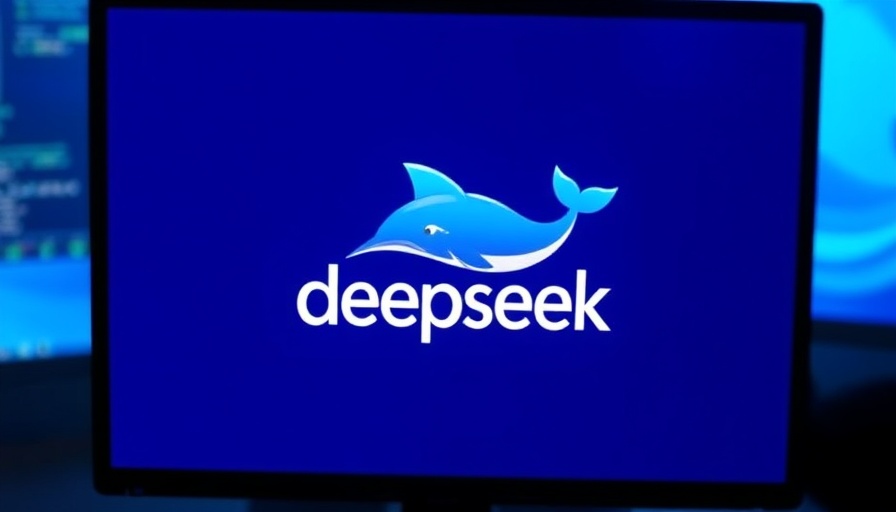
Subverting the Trade Laws: The Nvidia-DeepSeek Connections Explained
In a significant twist in the ongoing saga of global technology trade, three individuals were arrested in Singapore for their involvement in the illegal re-export of Nvidia GPUs to a Chinese AI company named DeepSeek. These arrests, conducted by the Singapore Police and customs officials during a coordinated operation across 22 locations, underscore the intricate layers of international compliance and national security implications surrounding advanced technology exports.
The Cracking Down on Smuggling: What Happened?
The arrests took place against a backdrop of heightened scrutiny by U.S. authorities, particularly due to recent findings indicating that Singapore had unexpectedly surged to become Nvidia’s second-largest revenue source in 2024. This spike raised alarms and suspicions that Singapore might be serving as a funnel for smuggling Nvidia’s advanced GPUs into China, thus bypassing severe U.S. trade sanctions designed to restrict such exports over national security concerns.
While specifics about the fraudulent dealings remain under investigation, reports suggest that the accused—which include two Singaporeans, Aaron Woon Guo Jie and Alan Wei Zhaolun, and a Chinese national, Li Ming—misled suppliers about the final destinations of the GPUs, falsely indicating that they would not be resold to unauthorized parties. Such actions could result in severe penalties, including substantial fines and potential imprisonment up to 20 years if found guilty.
The Bigger Picture of Global Trade and Compliance
This incident not only highlights the rigorous enforcement of trade laws within Singapore but also reflects a larger global tension over technological exports. As noted in related articles within the tech community, these enforcement actions reflect the critical balance Singapore must maintain as a thriving trade hub. While Singapore is not mandated to enforce U.S. sanctions, its proactive measures in stopping illegal trade emphasize its commitment to international law compliance.
Underlying this situation is the backdrop of U.S.-China relations, which have significantly deteriorated in recent years over technology and intellectual property theft concerns. The Biden administration, recognizing the need to safeguard the technological edge of the U.S., has imposed stringent regulations to stem the flow of advanced technologies that could bolster the Chinese military capacity. With tech giants like Nvidia in the spotlight, the ramifications extend beyond legal challenges for accused parties; they have the potential to impact investor confidence and shape the future landscape of AI development and export practices.
Nvidia’s Response: Denial and Transparency
In light of these events, Nvidia has maintained its innocence, stressing that shipments to Singapore comprise less than 2% of its total revenue, and that billing addresses do not correspond to actual delivery destinations. This statement highlights the complexities inherent in global supply chains, where the movement of high-tech components can be veiled by layers of financial and logistical arrangements that cloud accountability. Nvidia is cooperating with investigators in an attempt to clarify its role in this developing scenario.
Future Implications: What Lies Ahead?
The ramifications of this smuggling case are poised to influence international trade dynamics. As the investigation unfolds, it reveals potential vulnerabilities that could be exploited by parties seeking to circumvent legal norms in tech trades. Markedly, the incident may catalyze a more rigorous regulatory framework globally, particularly for high-tech exports. The ongoing geopolitical tug-of-war between the U.S. and China will likely spur a sense of urgency within nations like Singapore to tighten their compliance measures to prevent straying into the gray areas of trade law.
Moreover, the fallout may provoke a surge in domestic technological development among nations seeking to reduce reliance on foreign technologies, particularly in light of the advanced capabilities AI has to offer. This tightening of the market could lead to increased innovation in alternative semiconductor technology, effectively altering the landscape of AI development and usage globally.
What We Can Learn from the Nvidia Smuggling Case
The saga surrounding the Nvidia GPU smuggling incident not only shines a light on the implications of illegal trade practices but serves as a reminder of the importance of globalization and compliance in an interconnected world. As consumers and tech enthusiasts, understanding the intricate relationship between AI advancements, trade policies, and national security is crucial, especially as we navigate the complexities of modern technological advancements.
With allegations hanging and investigations continuing, the industry must prioritize transparency and make ethical considerations paramount in business practices. Stakeholders, including scientists and business leaders, are called to advocate for a future where technological innovation can flourish without compromising national interests or engagement in illicit activities.
As we look toward the future, it’s clear that staying informed will be key. The world's response to this insidious case could redefine the rules governing international technology trade and collaborative pursuits, ensuring that innovation aligns with global ethical standards.
 Add Row
Add Row  Add
Add 




Write A Comment